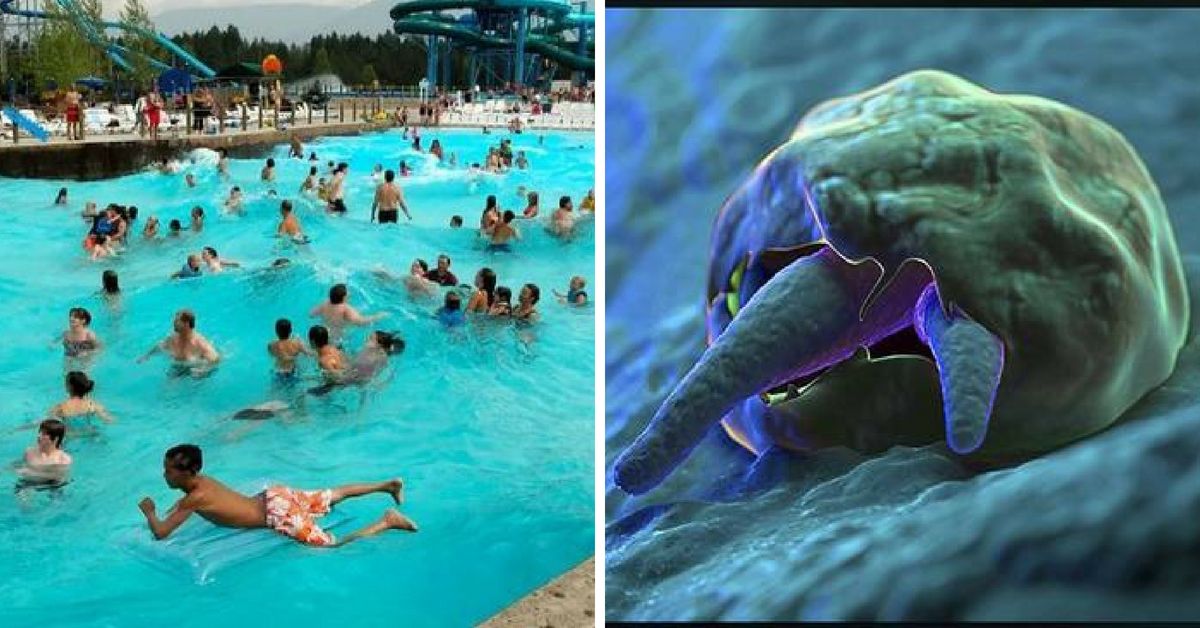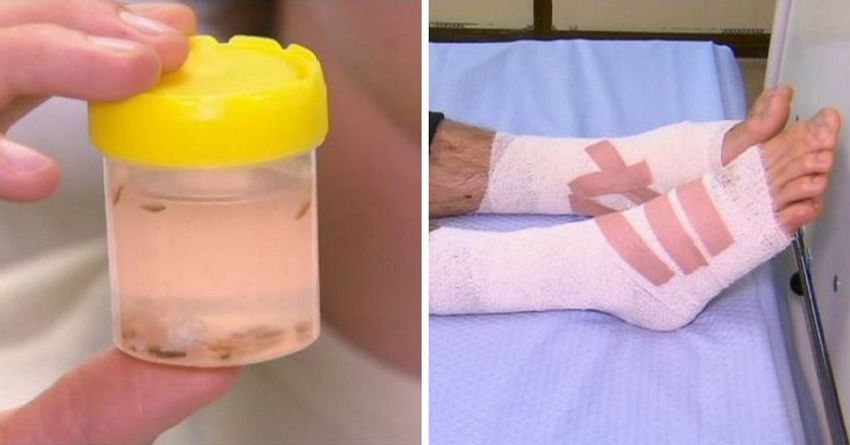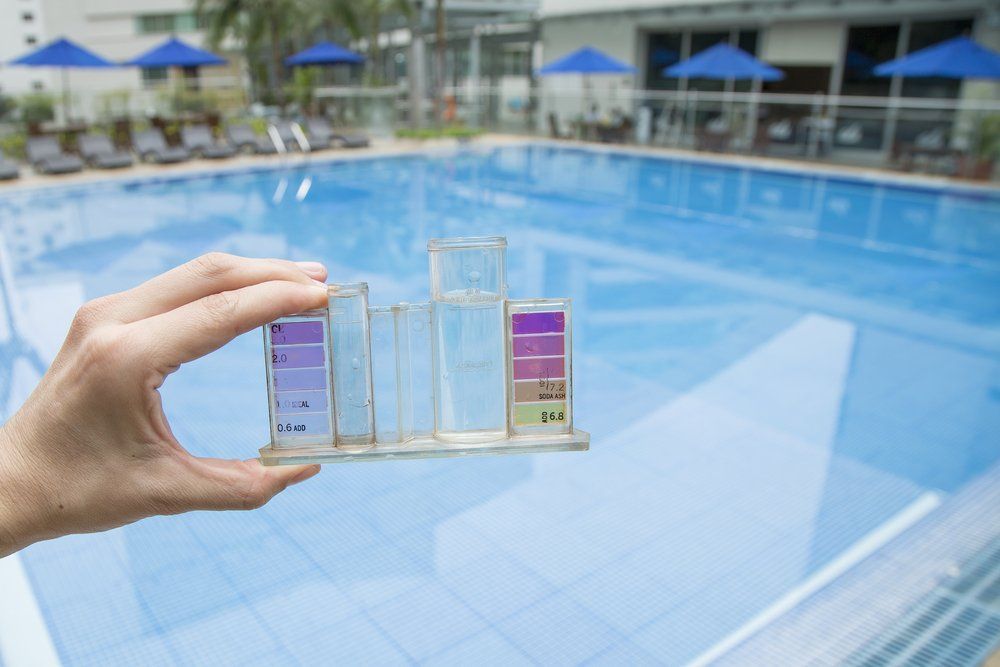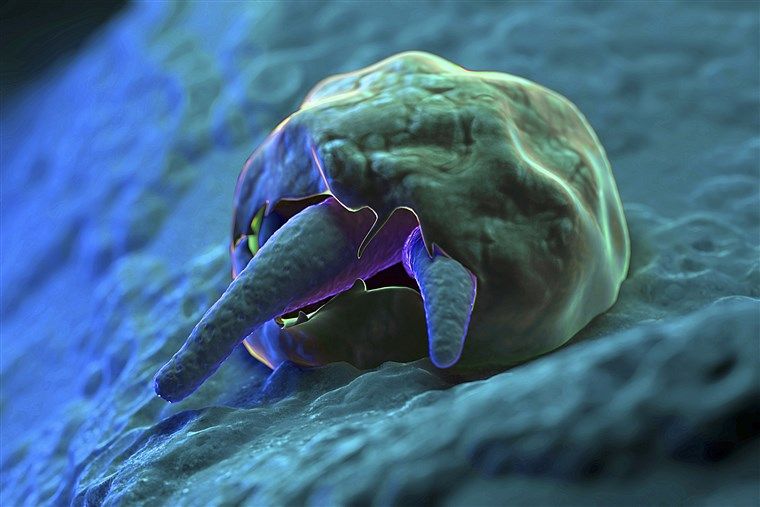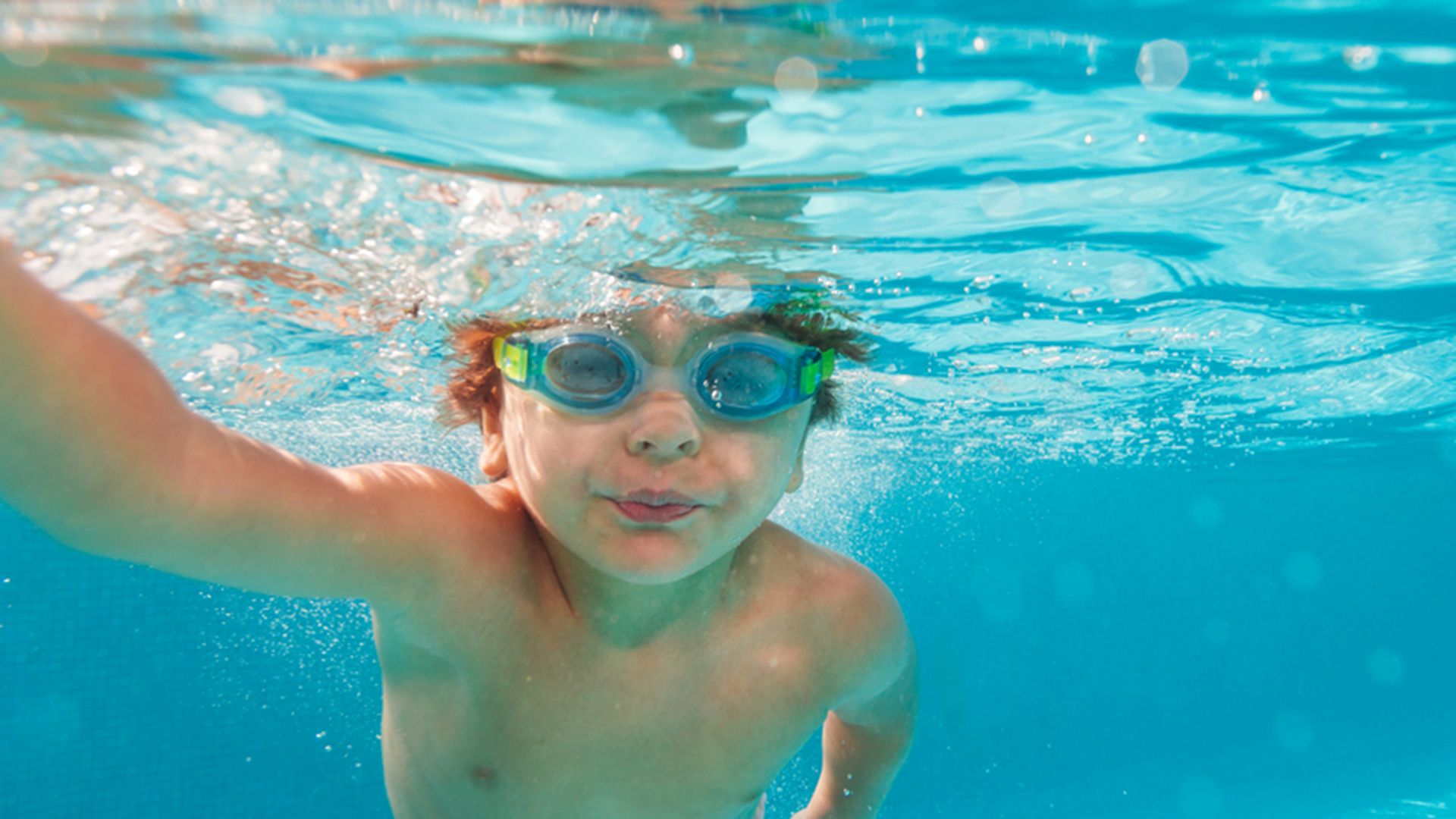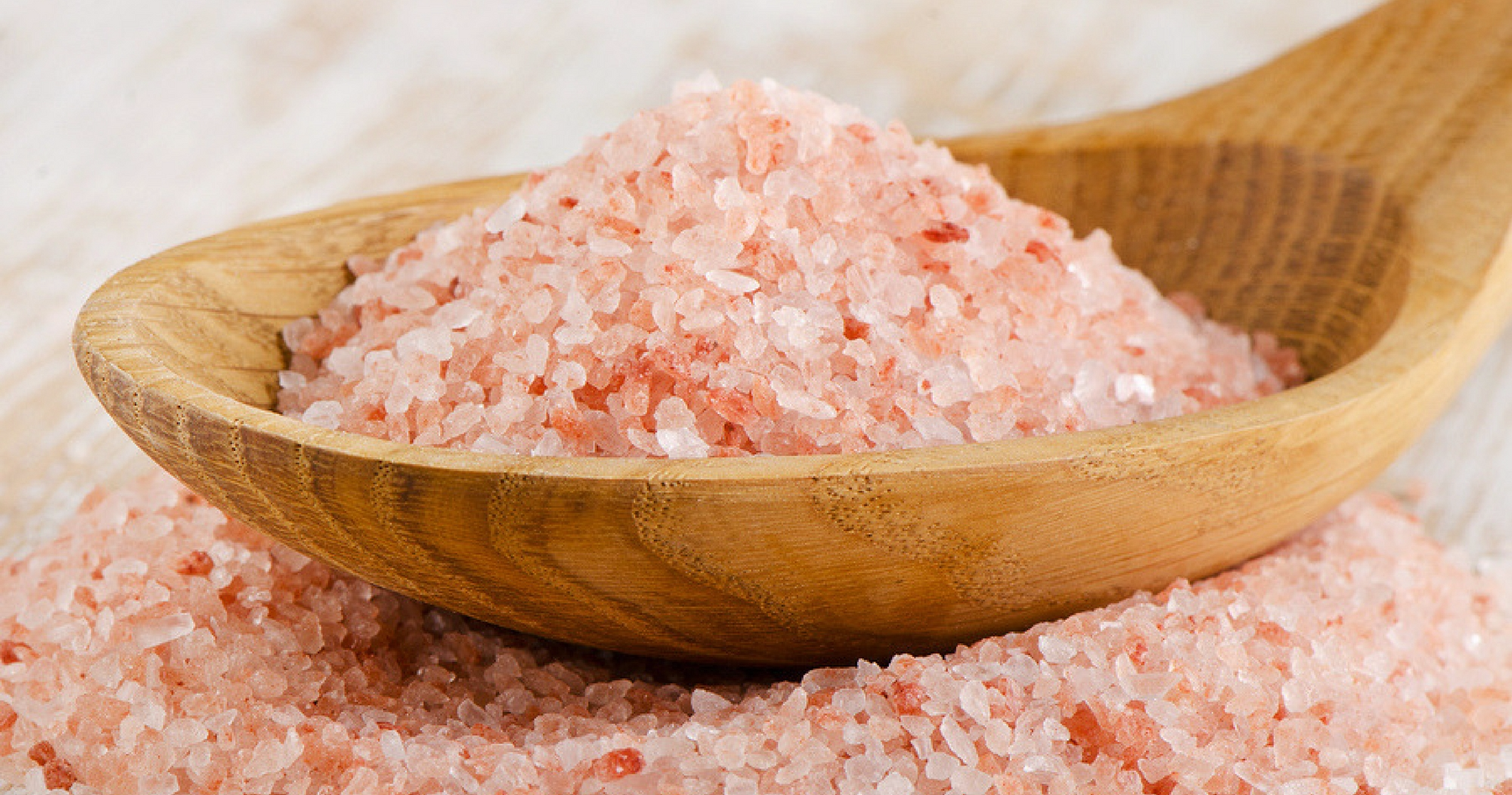We've been warned time and time again about the dangerous things lurking in the ocean, but how often do you hear about the hazards in our pools and water parks?
As temperatures are soaring this summer, we're encountering way more health hazards in our water systems.
Last month, lifeguards in Florida were warning about the potential dangers of sea lice attacks.
When people heard about all the icky things on beach sand and in beach water, they flocked to water parks and public pools.
The Lesser Of Two Evils?
The thing is, these places aren't as safe as you think either, despite all the chlorine pool maintenance staff claim to load into the water to kill bacteria.
For starters, if the pool has a strong "chlorine smell," it means it's super filthy, because the chemicals are kicked into overdrive and are working to absorb all that nasty bacteria.
And you can't even imagine how much human waste is found in public pools and water parks.
"A single fecal accident can contaminate a water park with millions of gallons of waters and be easily spread by swallowing a few mouthfuls of water," Dr. Kelly Reynolds, an associate professor at the University of Arizona College of Public Health, wrote in Water Conditioning and Purification Magazine.
Outbreaks Are Increasing
Cooling off in this heat seems like a good idea, but the question is, will it be worth it at the end of the day?
Experts are warning that even when public waters look crystal clear, there could still be a lot of harmful parasites swimming with you.
The most common swimming-related illness is caused by cryptosporidium, which can't be killed by chlorine.
"Even when the pool is cleaned with a regular amount of chlorine, crypto can live up to 10 days," Click 2 Houston reported.
This parasite causes a few deaths each year, and results in weeks-long bouts of diarrhea.
Other pathogens lurking in the water include E.coli, shigella, campylobacter, vibrio, hepatitis A and typhoid.
Last year, one man contracted an eye-eating parasite while whitewater rafting at a water park.
From A Splash Of Water
When contaminated water from Kennywood Park's Raging Rapids in Pittsburgh splashed into Robert Trostle's eye, he showed signs of pinkeye, but the culprit of his pain was something entirely different.
Trostle was diagnosed with microsporidia keratitis, a type of eye infection caused by a parasitic fungi.
The parasite ate away the cornea of this eye, forcing him to undergo "an extremely painful surgery where the parasite was scraped out of the eye with a surgical scalpel," according to Pittsburgh Post-Gazette.
In light of these cases where people have contracted a nasty parasite from swimming in public pool waters, here are three tips on how to keep you and your family safe.
How To Protect Yourself
1. Know when to walk away
If you walk near a public pool or water park and it reeks of chlorine, it's probably a good idea that you return another day.
As mentioned before, the strong smell of chlorine indicates an overwhelming number of pathogens in the water.
2. Don't swallow water
I'm sure no adult swallows mouthfuls of pool water on purpose, but children sometimes do.
Make sure to instruct kids and babies to spit pool water that comes into their mouth.
3. Keep an eye out
If you see anything strange in the water, babies walking around with dirty diapers, or someone sick, get out of the water immediately.
These are signs that something is not right. And remember, always trust your gut feeling.
